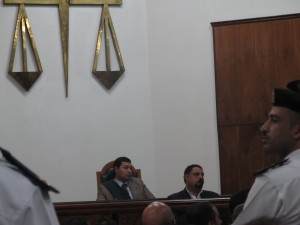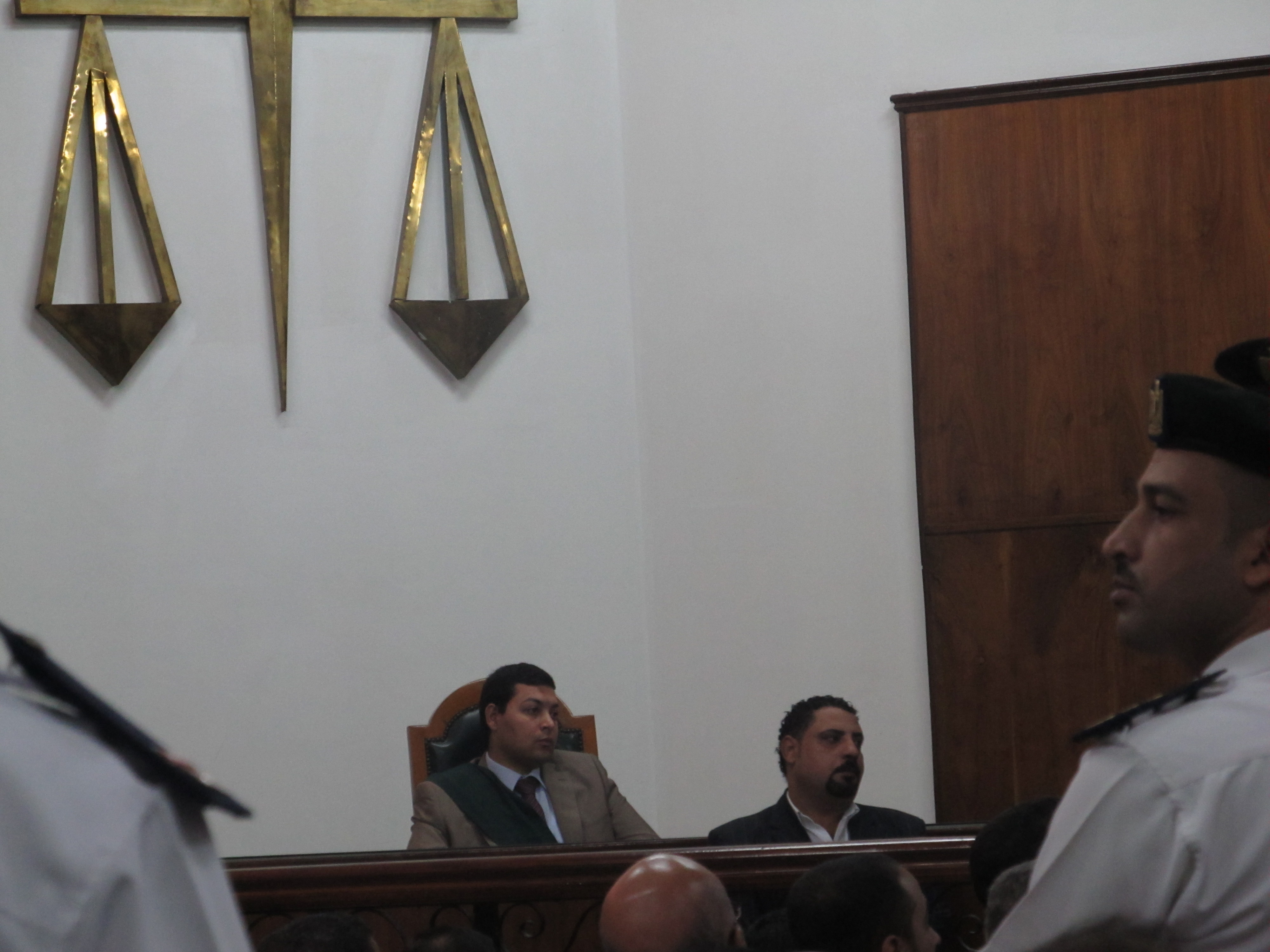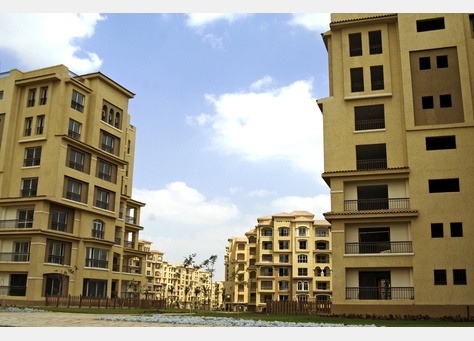
A case appealing two former prime ministers’ decisions to give the lands upon which Nile University was built to Ahmed Zuweil has been postponed until Wednesday to allow time for both parties to bring forward any documents or requests they wish to submit.
The judge explained that such a case cannot be reviewed except within a special session, assuring the court that none of the contending parties shall be treated unjustly.
The case was filed by lawyer and ex-parliamentarian Hamdy Al-Fakharany, alongside Nile University students, demanding that the decision to give the disputed land to Zuweil Science City be reversed and the land returned to Nile University.
Raga’i Atteya, lawyer on behalf of Zuweil, demanded list of papers including each and every formal decision taken in regards to Zuweil Science City and Nile University since the year 2000.
Nile University was represented by lawyers Mohamed Hammouda, Gaber Nassar and Yehia Al-Fakharany. Dozens of Nile University students and their parents were present.
Nile University lawyers said that the decision to give the lands to Zuweil Science City was invalid since the waiver of the land, by some board members of Nile University, wasn’t documented.
“The establishment of Nile University came through a presidential decree,” Hammouda said during the session, referring to a decree issued by former president Hosni Mubarak 2006, “and thus it cannot be reversed except with another presidential decree.
“I’d like to see a new president come and kick those students out of their campus; I shall stand up to him myself!”
Nassar requested the judges to issue an order granting Nile University students access into the disputed buildings for as long as the case is postponed, explaining that such an order would not be a without precedent.
“The students have final exams in December, they need to start preparing for them,” Nassar said. Nile University students have been attending classes during their sit-in, held outside the university campus in the disputed land. They also held a couple of viva exams during the sit in, which is almost 50 days old.
Atteya stated that the piece of land upon which Nile University was built is a property of the Ministry of Communication. He added that tax money was used in building the university, which was registered as a private university even though its board and students continuously claim it is a non-profit establishment.
“This is considered a crime involving the facilitation of the seizure of public money and harming public money,” Atteya said in court.
Upon the postponement of the case Atteya told the judges that such a decision would incapacitate him, since he wouldn’t be able to bring forward all the documents by Wednesday.
The court was filled with applause and chants as the Nile University students celebrated the judge’s decision.
“We’re happy because Atteya couldn’t find anything to say during the session,” Dalia Omar, Nile University student and sit-in participant, said. “He knows that his position isn’t a legal one.”
Omar was among the students who attended the session, wearing Nile University T-shirts. She said that the students shall go back to their sit-in outside the Nile University campus, hopeful that court would eventually grant them the right to return to the disputed land.
Nassar also came out of the session victoriously. “Atteya was very nervous because he knows we shall win the case,” he said.
The final verdict is expected to come in after the Adha Eid.
Outside the State Council building, members of the 6 April movement (Democratic Front) and Free Egyptians party were present, showing their solidarity with the Nile University students.
The Nile University sit-in began in early September after the government’s decision to appropriate university buildings and give them to the Zuweil City. Both institutions claim they have the right to the buildings.
Nile University was established in 2006 as a private university following a presidential decree via the former prime minister, Ahmed Nazif. After the 25 January Revolution, the university’s board of trustees waived the rights to the land, buildings and equipment. The Ministry of Communications then gave Zuweil City the right to use the disputed lands through decisions issued by both Ahmed Shafiq and Essam Sharaf (subsequent prime ministers). The Nile University students insist that the waiver was an illegal one since it was done over the phone and not documented. Zuweil’s advisors maintain the transaction was documented.




